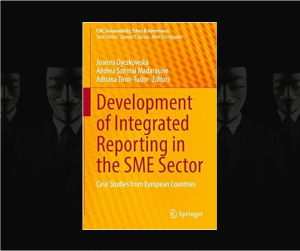WHAT IS THE DEFINITION OF AN SME IN EUROPE?
Written & Curated By Iain Fraser – Cybersecurity Journalist,
IainFRASER.net/KeyPointIntel
SME Cyber Insights
#CybersecurityJournalist #CYBERInsights #SMECyberInsights #SMECybersecurity #CYBERKnowledge #CYBERKPIs #SMECybersecurity
SME definition
Small and medium-sized enterprises (SMEs) represent 99% of all businesses in the EU. SMEs are considered to be the backbone of Europe’s economy with 25m+ active entities employing 100m+ workers. Small and medium-sized enterprises (SMEs) are defined by the EU by the following criteria; The main factors determining whether an enterprise is an SME are;
Staff Headcount
Medium <250, Small <50, Micro <10
Turnover or Balance Sheet
Medium <€50m Turnover or <€43m Balance Sheet, Small <€10m or <€10m Balance Sheet, Micro <€2m or <€2m Balance Sheet

Unveiling the SME Definition in Europe: Criteria, Benefits, and Future Prospects
Overview of SMEs in Europe
Small and Medium-sized Enterprises (SMEs) are not only the backbone but the lifeblood of the European business landscape, representing a substantial majority of all businesses within the region. These businesses play a significant role in driving economic growth, fostering innovation, and creating job opportunities. The EU categorizes SMEs based on specific criteria, which include the number of employees, turnover, and balance sheet total. For instance, micro enterprises, the smallest category, can have up to 9 employees and generate a turnover of up to €2 million annually. This classification system is crucial for businesses seeking to access EU support programs tailored to their unique needs and challenges.
Significance of SME Definition in Europe
SMEs are indeed the backbone of the EU economy, representing a substantial majority of all businesses. The SME definition ensures that businesses are accurately categorised based on their size and financial metrics. Compliance with the SME criteria can lead to eligibility for funding opportunities and regulatory exemptions. For example, meeting the EU’s SME criteria can open doors to financial assistance and networking opportunities, providing SMEs with the necessary support to thrive in the competitive business environment.
Criteria for Categorising SMEs
The European Union employs a structured approach to categorise Small and Medium-sized Enterprises (SMEs) based on specific criteria. This method ensures a clear distinction between micro, small, and medium-sized enterprises, each with distinct characteristics. For instance, micro enterprises are characterised by having up to 9 employees and generating a turnover of up to €2 million annually. This specific classification enables policymakers and support programmes to understand the unique challenges and opportunities these businesses face, allowing for targeted interventions.
Small enterprises, on the other hand, can have a staff count of up to 49 employees and a turnover of up to €10 million per year within the EU framework. By defining these parameters, the EU can provide appropriate resources and assistance to foster the growth and sustainability of small businesses. Moreover, medium-sized enterprises, with a staff limit of up to 249 employees and a turnover ceiling of €50 million annually, represent a critical segment of the SME landscape. This categorisation not only aids in determining the eligibility for various support schemes but also facilitates a more nuanced approach towards addressing the diverse needs of businesses at different stages of development.
Benefits of SME Status in the EU
Obtaining SME status in the EU offers businesses a plethora of advantages beyond mere classification. In addition to gaining access to tailored EU business-support programmes, SMEs benefit from reduced administrative burdens, allowing them to allocate more resources towards growth and innovation. For instance, a small software development company that qualifies as an SME not only gains access to funding opportunities but also benefits from simplified bureaucratic processes, enabling the team to concentrate on enhancing their product and reaching a broader customer base.
Conclusion
It is paramount for businesses operating in Europe to grasp the intricacies of the SME definition to optimise their access to various forms of assistance and financial aid provided by the EU. For example, a tech start-up with 30 employees and an annual turnover of €5 million would fall within the criteria of a small enterprise, making it eligible for specific funding initiatives tailored to support innovation and digitalisation efforts. By aligning their operations with the EU’s SME classification requirements, companies can not only benefit from reduced administrative burdens but also gain a competitive edge through networking opportunities and financial support. Download KPI/… Register Free to Download this KPI

RECOMMENDED READING: Development of Integrated Reporting in the SME Sector:
This book examines on an international basis how small and medium-sized enterprises (SMEs) cope with the changing economic and social challenges, which are also reflected in financial and non-financial reporting. To this end, it presents six case studies from Germany, Hungary, Romania, Poland, Italy, and the United Kingdom, with a particular focus on integrated reporting (IR). The cases presented are drawn from collaborative research within the international network of INTEREST, an international project on integrated reporting for SME transparency.

CYBER INSIGHTS: KPIs
CYBER KPIs: (Knowledge Panel Intelligence) Timely Human generated, AI assisted Definitive Explainers to the most popular Cybersecurity Keyword, Keyphrase & Longtail Search terms in any given month as defined By Google Analytics™ & Bing

INVESTIGATIONS 2024:
1. THE SMALL BUSINESS LOAN SCAM This model of the Small Business Loan Scam started during the Covid Pandemic and true to form the Scammers were offering “Guaranteed” Small Business Loans. Well, I have to report that the Business Loan Scam is rearing its ugly head. Register Free to read the full Report
2. PHISHING: The Sextortion scam as it is termed, has raised its ugly head again with a refined Scam for 2024. I first wrote about this nearly six years ago after I received a flurry of emails with the standard copy & paste text. Most Small Businesses/ SMEs ignore these threats as not being relevant to business but they would be wrong! Register Free to read the full Report

CYBERSECURITY EVENTS – EUROPE | LIVE & VIRTUAL
29/02/2024 – THE FRAUD CONFERENCE | London – Learn More /…
06/03/2024 – CLOUD&CYBER SEC EXPO | London – Learn More /…
17/03/2024 – RETHINK! IT SECURITY | Berlin – Learn More /…
20/05/2024 – CYBERWISECON EUROPE | Online – Learn More /…
31/05/2024 – SANS RANSOMWARE SUMMIT | Online – Learn More /…

CYBER VOICE/PR WIRE
CYBER TRAINING: Test Drive World-Class SANS Cyber Security Training
GARTNER: Roll out the AI Opportunity Radar to your executive team.
VEEAM: Cybersecurity Best Practices and Hybrid Cloud Resilience.
SME RESOURCES: Why Choose Datadog? Full-Stack Observability.
SPLUNK: Best practices for practical observability – must-read report.








